Hollywood At A Standstill: The Writers' And Actors' Joint Strike
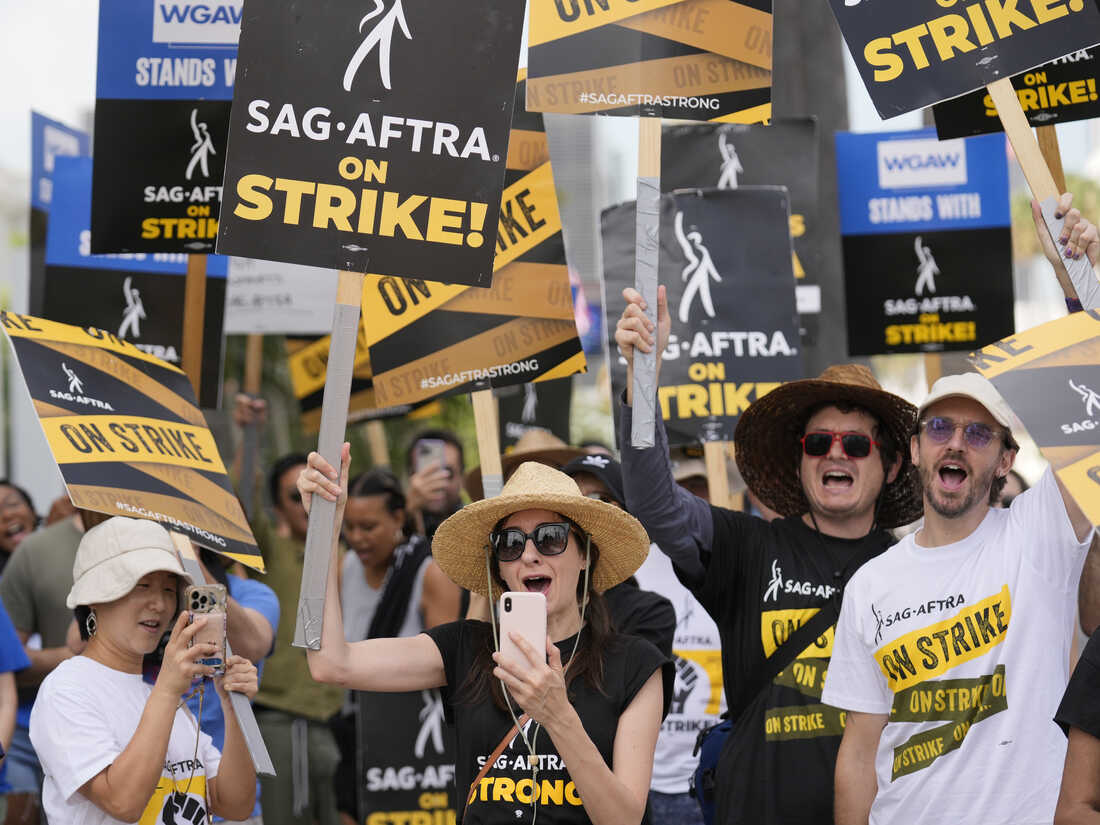
Table of Contents
The Core Issues Fueling the Strike
The current Hollywood strike is a culmination of long-standing grievances related to compensation, the rise of artificial intelligence, and overall working conditions. These issues, significantly exacerbated by the shift to streaming platforms, have pushed both the WGA and SAG-AFTRA to take this unprecedented joint action.
Fair Compensation and Residuals in the Streaming Era
The transition from traditional broadcast television to streaming services has dramatically altered the compensation landscape for writers and actors. The old model, with clear residual payments based on repeated broadcasts, has been largely dismantled. Streaming services often operate on opaque revenue models, making it difficult to track viewership and fairly compensate creative professionals.
- Lack of transparency in streaming revenue: Studios often refuse to share detailed financial data regarding streaming performance, making it impossible to negotiate fair residuals based on actual viewership.
- Demand for increased residual payments based on streaming viewership: The unions are demanding a fairer share of the massive profits generated by streaming platforms, with residuals directly tied to the number of streams.
- Concerns about the devaluation of creative work in the streaming model: The current system undervalues the creative contributions of writers and actors, leading to significantly reduced earnings compared to the broadcast era.
AI and its Impact on Creative Work
The increasing use of artificial intelligence in the entertainment industry is a major point of contention. Both the WGA and SAG-AFTRA are deeply concerned about the potential for AI to replace human talent, devalue their skills, and undermine their livelihoods.
- Concerns about AI-generated scripts and performances: The unions are worried about the potential for studios to use AI to generate scripts and even create digital performances, reducing the need for human writers and actors.
- Demand for regulations on AI usage: The unions are pushing for strong regulations on the use of AI in the entertainment industry, ensuring that human creatives remain central to the process.
- Need for protections against AI replacing human workers: Key demands include safeguards to protect actors and writers from being replaced by AI-driven tools and ensuring fair compensation when AI is used in their creative work.
Working Conditions and Power Dynamics
Beyond compensation, the strike addresses deeply ingrained issues of power imbalance and exploitative working conditions. Long hours, grueling schedules, and a lack of protection against harassment and discrimination are common complaints.
- Demand for shorter working days: The unions are fighting for more reasonable working hours, reducing the strain and burnout often experienced by writers and actors.
- Improved health and safety regulations: Better protections and regulations are needed on sets to ensure a safe and healthy work environment.
- Protection against harassment and discrimination: The unions are advocating for stronger measures to prevent and address harassment and discrimination within the entertainment industry.
The Impact of the Joint Strike
The joint strike by the WGA and SAG-AFTRA has brought Hollywood to a near-complete standstill, with far-reaching consequences.
Production Halts and Delays
The strike has resulted in the immediate halt of numerous film and television productions across the country. This has cascading effects on countless professionals within the industry.
- Delayed film and TV releases: Numerous projects have already experienced significant delays, impacting release schedules and potentially box office revenues.
- Impact on post-production work: Post-production crews, including editors and visual effects artists, are also facing job losses or project delays.
- Job losses in related industries (catering, transportation etc.): The ripple effect extends beyond the creative workforce, impacting countless support staff and related industries.
Economic Implications for Hollywood and Beyond
The economic impact of the strike is substantial and far-reaching, affecting not only Hollywood but also related businesses and local communities.
- Losses in revenue for streaming services: Streaming platforms are experiencing a drop in new content, potentially impacting subscriber numbers and revenue streams.
- Impact on tourism in Hollywood: The strike reduces the appeal of Hollywood for tourists, impacting local businesses reliant on tourism revenue.
- Economic impact on local communities: The economic effects extend beyond the major studios, with local businesses suffering from a decline in activity and revenue.
Potential Outcomes and Negotiations
The outcome of the strike remains uncertain, with several potential scenarios playing out.
Possible Scenarios and Resolutions
The strike could end with a negotiated settlement, or it could drag on for an extended period, potentially lasting several months or even longer.
- Possibility of a compromise agreement: Negotiations could lead to a compromise that addresses some of the key issues raised by the unions, leading to a resolution.
- Potential for a long-term strike: If negotiations fail to produce a satisfactory agreement, the strike could continue for a prolonged period, inflicting significant damage on the industry.
- Scenarios involving government intervention: While unlikely, the possibility of government intervention or mediation cannot be ruled out.
Long-Term Implications for the Entertainment Industry
Regardless of the immediate outcome, this strike will undoubtedly leave a lasting impact on the entertainment industry.
- Potential for changes in streaming models: The strike could force streaming services to re-evaluate their compensation models and become more transparent with their revenue data.
- Long-term impact on labor relations: The strike could reshape labor relations within the industry, potentially leading to stronger unions and greater protections for creative professionals.
- Changes in production practices: The industry might adopt new production practices in response to the strike, focusing on efficiency and fairer treatment of workers.
Conclusion
The Hollywood writers' and actors' joint strike is a watershed moment. The core issues—fair compensation, the ethical use of AI, and improved working conditions—underscore a significant power imbalance. The ongoing Hollywood strike's impact on production, the economy, and the future of the industry is profound. The resolution of this unprecedented Hollywood strike will reshape the entertainment landscape for years to come. Stay informed about this evolving situation and support the writers and actors in their fight for fair treatment. Understanding the nuances of this writers' and actors' strike is essential to grasping the future of film and television. Follow the latest developments on this historic entertainment industry strike to witness how it ultimately unfolds.

Featured Posts
-
 Aliyev Natanyahvo Tramp Harabyervo Tyvo Nnyeri Vyerlvo Tsvo Tyvo N
May 06, 2025
Aliyev Natanyahvo Tramp Harabyervo Tyvo Nnyeri Vyerlvo Tsvo Tyvo N
May 06, 2025 -
 Planning The Perfect Independence Day Tips Recipes And Party Ideas
May 06, 2025
Planning The Perfect Independence Day Tips Recipes And Party Ideas
May 06, 2025 -
 Zamowienie Na Trotyl Z Polski Zagadnienia Bezpieczenstwa I Logistyki
May 06, 2025
Zamowienie Na Trotyl Z Polski Zagadnienia Bezpieczenstwa I Logistyki
May 06, 2025 -
 Mindy Kalings Slim Figure Stuns Fans At Series Premiere
May 06, 2025
Mindy Kalings Slim Figure Stuns Fans At Series Premiere
May 06, 2025 -
 Romanias Presidential Runoff A Clash Of Ideologies
May 06, 2025
Romanias Presidential Runoff A Clash Of Ideologies
May 06, 2025
Latest Posts
-
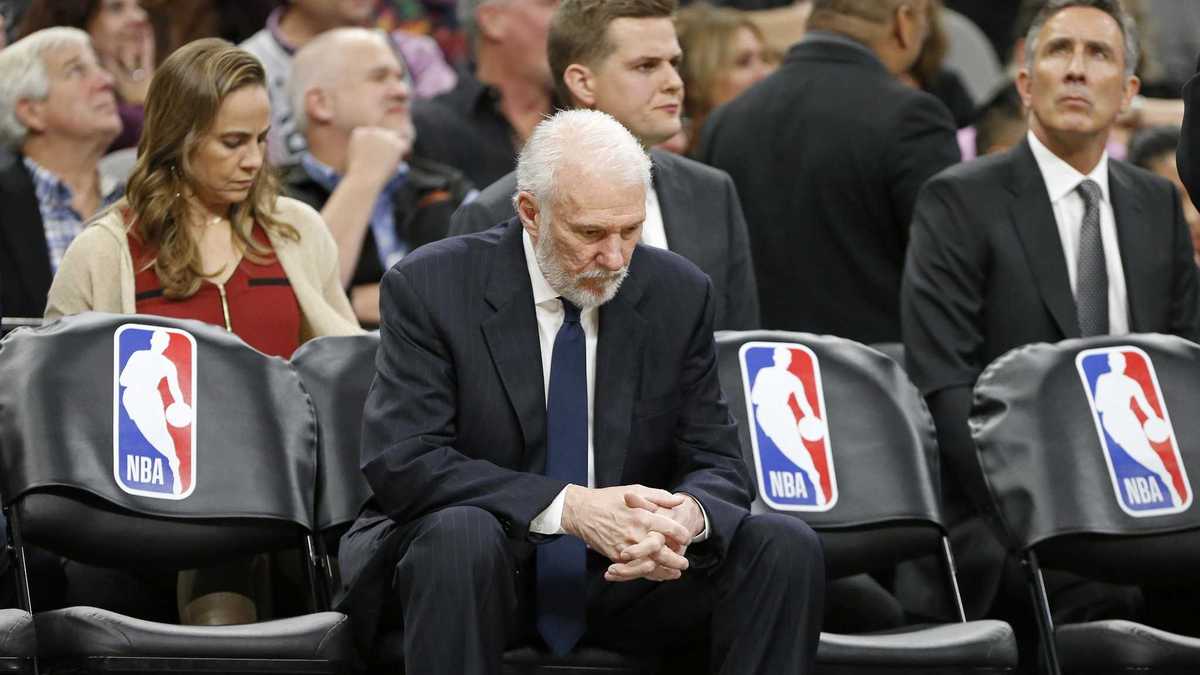 Popovichs Health And The Spurs Future A Concerning Trend
May 06, 2025
Popovichs Health And The Spurs Future A Concerning Trend
May 06, 2025 -
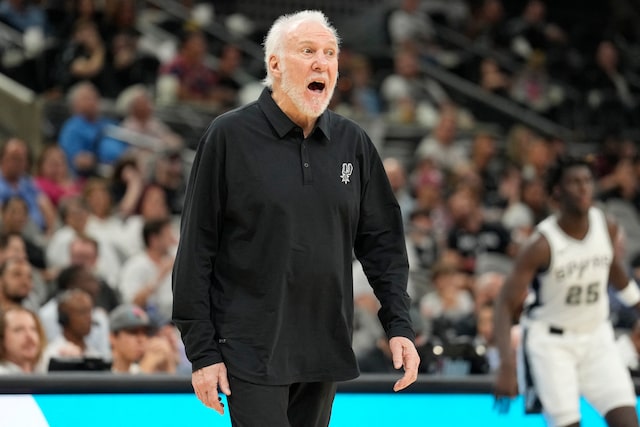 Gregg Popovichs Future Uncertain Recent Developments Raise Concerns
May 06, 2025
Gregg Popovichs Future Uncertain Recent Developments Raise Concerns
May 06, 2025 -
 Scary Gregg Popovich Development Is This The End Of His Nba Reign
May 06, 2025
Scary Gregg Popovich Development Is This The End Of His Nba Reign
May 06, 2025 -
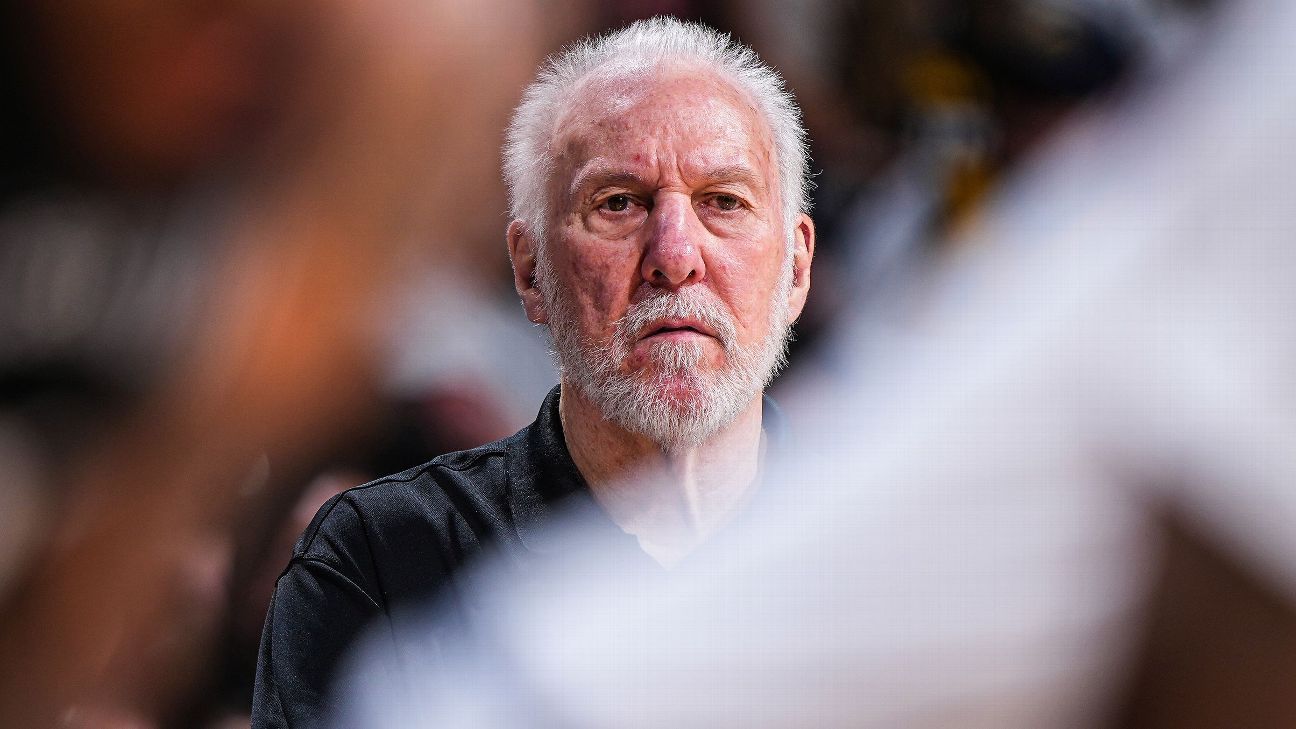 Gregg Popovichs Season Status Espn Report Casts Doubt On Spurs Coachs Return
May 06, 2025
Gregg Popovichs Season Status Espn Report Casts Doubt On Spurs Coachs Return
May 06, 2025 -
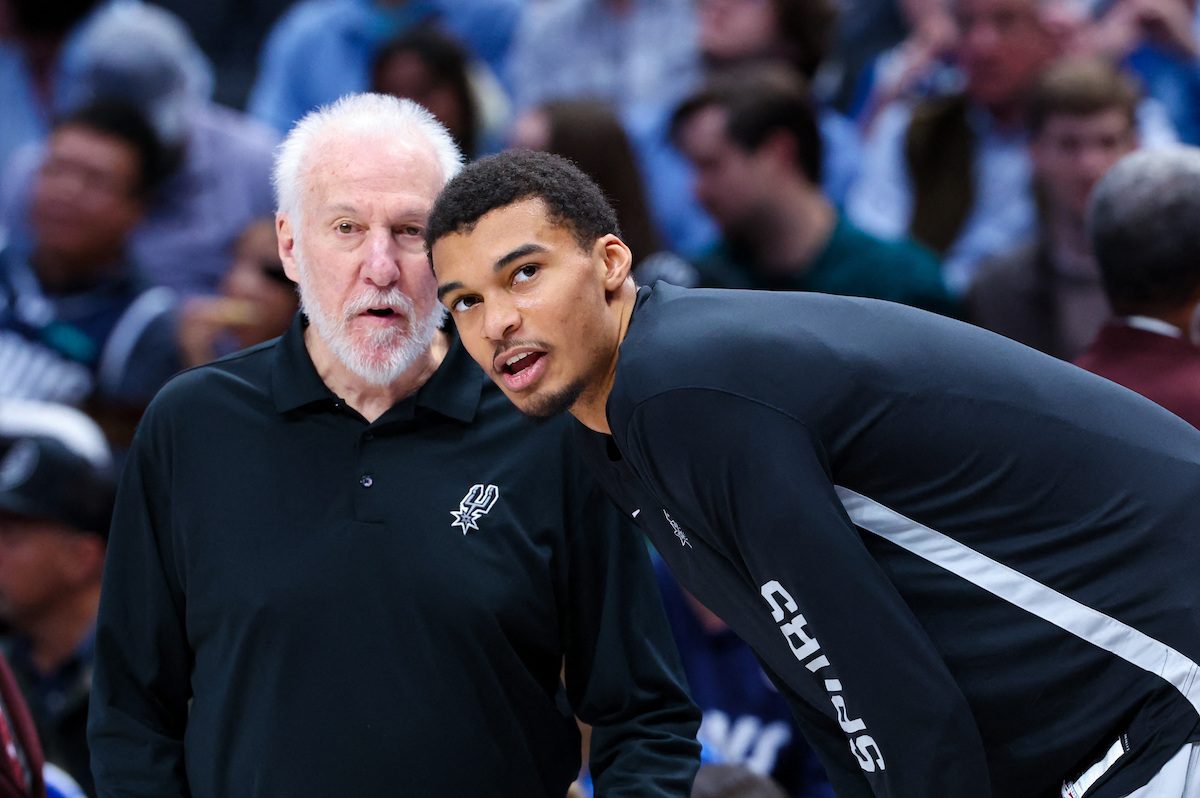 Espn Report Gregg Popovichs Status With The Spurs Uncertain For The Remainder Of The Season
May 06, 2025
Espn Report Gregg Popovichs Status With The Spurs Uncertain For The Remainder Of The Season
May 06, 2025
